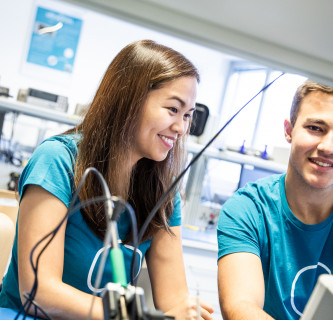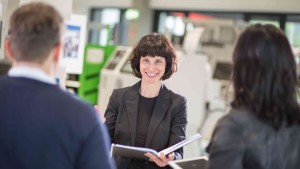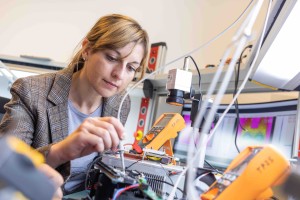System Test Engineering
My Studies

“The systematic testing of complex intelligent systems is one of the most challenging tasks of the future. Our degree programme meets this challenge by providing students with access to the knowledge and skills of leading experts in industry and science.”
Key subject areas
AI. Machine learning and data analysis.
You will deepen your understanding of statistical methods and data analysis in order to develop data-driven solutions for a variety of applications. You will learn to understand and apply advanced machine learning techniques and algorithms to extract patterns and insights from large datasets.
Innovative. Automated testing.
You will gain in-depth knowledge of specific software tools and programming languages so that you can develop and apply automated tests for high-tech products. These skills will allow you to improve quality assurance in the high-tech industry and help bring innovative products to market faster.
Reliable. Automotive testing.
Intensive testing of electronic systems in the automotive industry is crucial to guarantee vehicle safety. You will learn to understand electronic assistance systems such as emergency braking systems, lane departure warning systems and autonomous driving systems, and to develop test systems to ensure their reliability.
High-tech. Chip manufacturing.
In high-tech chip manufacturing, efficient testing processes are essential for reliably producing high-quality integrated circuits. Students learn how to develop and apply efficient test procedures for the chip industry, and how to integrate appropriate test structures on the chip. Special laboratories equipped with chip testers are available for this purpose.
Master’s Thesis & Scientific Work
In your Master’s thesis you will carry out research in your specialised field and present the results in a scientific manner.
Organisation
Our degree programme takes an overwhelmingly practice-oriented approach. Students work in small groups in excellently equipped laboratories, ensuring they receive individual supervision and plenty of hands-on experience. Moreover, study and in-person attendance is scheduled between Wednesday and Friday, giving students the opportunity to gain additional experience by working part-time for a company in the industry.





